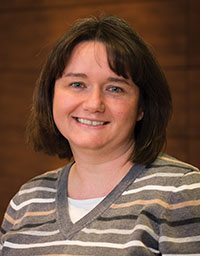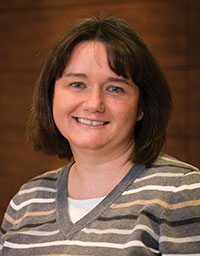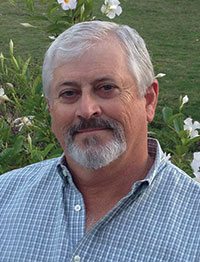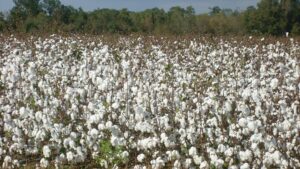Two plant breeders talk about the now and take a look into the future.
MEET THE PLANT BREEDERS:
Jennifer Yates
As the Latin America plant health and native traits lead for Monsanto’s global plant breeding program, Jennifer Yates is excited about the genetic potential of plants and feels the industry is undergoing a renaissance.
Yates has made significant contributions, which have extended her passion for plant breeding through notable research, discoveries that advance knowledge and bring direct benefits to growers. She also works to enhance the field of plant breeding by attracting and developing talent, particularly through the support and mentorship of women in plant breeding.
As a soybean breeder, she oversaw a highly productive breeding station during its transition to the Roundup Ready 2 Yield platform, releasing more than 80 varieties. In her current role, she has direct responsibility for the disease and abiotic stress pipeline screening and discovery program for Latin America. Her team develops DNA markers and determines pathogen population shifts, identifying changes and resistance to new pathogens so breeders can select for disease resistance earlier in their programs.
Lloyd McCall
As North America soybean breeding lead for Bayer CropScience, Lloyd McCall is responsible for its breeding programs. He is most excited about enhancing the germplasm base and that the future for plant breeding looks to become more precise and more efficient.
McCall has managed soybean breeding programs in the mid-south region of the U.S. but also conducted yield and agronomic studies in corn, wheat, alfalfa and forage grasses and developed product support information for field production and marketing. In 1998, McCall joined Stoneville Pedigreed Seed Company as the Mid-South Research Station manager, where he was responsible for breeding conventional cotton varieties and supervising the development of transgenic varieties. During that time, he also contributed significantly to the establishment of cotton breeding efforts in both Argentina and Brazil.
In 2000, McCall was named the U.S. plant breeding manager for Stoneville, then in mid- 2003, became the Director of U.S. research and development. During the Monsanto years for the Stoneville group, he served as the technology development cotton germplasm manager with responsibility for the evaluation of advanced strains, guiding the variety release decisions, and supporting the cotton variety marketing efforts. After the Bayer acquisition of Stoneville in 2007, McCall served as the Eastern U.S. cotton breeding manager, the director of global cotton breeding and the global director of molecular breeding where he guided, supported, and directed molecular breeding and native trait research activities for Bayer’s field crops.
Industry plant breeders tell us what they’re excited about, how they stay on top of changes, what hurdles the industry needs to overcome and more.
Q1. What are you working on that you’re most excited about right now?
Yates: I am most excited about our ability to further understand GxE or, said another way, genetic potential of plants in different environments using new tools available in precision agriculture like remote sensing, and in soil health.
McCall: Enhancing the germplasm base.
Q2. The evolution of plant breeding techniques seems to be changing at an ever-increasing rate. How do you stay on top of these changes?
Yates: I stay on top of new techniques and changes in plant breeding by reading journals, attending conferences and focusing on hiring talented students and post-docs who are skilled in these new areas. Realizing that I can’t be an expert in all of these areas, I utilize other subject matter experts and teams who work in areas like automation, for example.
McCall: It is very difficult, but we must devote time for education and build a network of contacts with expertise.
Q3. There’s concern about whether some of these new breeding techniques will eventually be regulated like GMOs. Should they be and why or why not?
McCall: I am not an expert in this arena, but have read some. Most of the comments that favor regulation are lacking a scientific basis. If there is a solid fact-based reason for regulation, then OK, if the reasons are politically or emotionally based, then no regulation.
Q4. What are the biggest hurdles that the plant breeding industry needs to overcome?
Yates: In plant breeding we are always working toward identifying and incorporating more genetic variation, but it is a long process. To continue delivering value to growers, we are challenged to find new ways to improve other components of the genetic gain equation. This is both an exciting proposition, but also challenging because it means we have to change the way we have bred crops in the past.
McCall: The general public does not know what we do or understand how important we are to the future security of their food and fiber needs. With an ever-expanding global population and decrease in cultivated land area, we must continually increase output and breeding plays a key role.
Q5. What are your three biggest concerns for the plant breeding industry?
Yates: One concern is the timing for the recovery of the ag economy and commodity prices. In these challenging circumstances, we need to prioritize our research with a greater amount of rigor. A second concern is finding the talent to fill positions in new technology areas. Since these roles are nontraditional agricultural disciplines, the industry is facing limited supply of candidates. Finally, I am concerned about product differentiation and continuing to drive the genetic diversity of products in an industry, which is going through continuous evolution and change.
McCall: 1) Genetic diversity, 2) Germplasm access and 3) Lack of young plant breeders.
Q6. If you can peer into your crystal ball, what’s the future of plant breeding look like in the next five to 10 years?
Yates: I believe in addressing the concerns above; in the next five to 10 years the outcome of our creativity and innovation will show up as increased value to growers through more customized information about our Asgrow and DEKALB seed products, maximizing a grower’s return across the fields while minimizing inputs. In doing this, we will have not only understood the particular GxE affecting yield across a grower’s field, but will have leveraged the environment to produce higher yield.
McCall: With the progress of science and increased understanding of plant biology and genetics, plant breeding has become much more precise and more efficient. The art of breeding today is how the different technologies are utilized as a package to develop new products, and not so much the “eye” of the breeder. However, while we are able to do more and more evaluation/predictions in the lab, materials will still need to be evaluated in field conditions, thus I anticipate breeders will still need field training and will need to spend significant time in the field.
Q7. What’s your advice for students who are interested in pursuing a degree in plant breeding and genetics?
Yates: The field of plant breeding and genetics is undergoing
a renaissance. Never before have we had so many tools to understand genetic variation, to increase it, to select for it, and to affect the other parts of the breeding equation to drive yield and performance to the next level. It is a great career. We need creative students who can think outside the box, and apply standards and protocols from unconventional disciplines to
continue creating innovations in this space.
McCall: Don’t hesitate, do it — but get a well-rounded education with experience in both lab and field situations.














